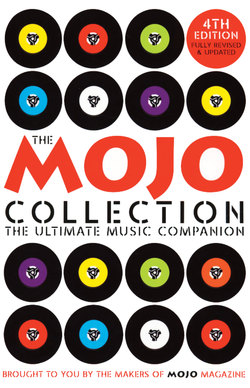Читать книгу The Mojo Collection - Various Mojo Magazine - Страница 77
На сайте Литреса книга снята с продажи.
Fred Neil Fred Neil Recluse comes out of hiding long enough to leave indelible footprint in the sands of pop history.
ОглавлениеRecord label: Capitol
Produced: Nick Venet
Recorded: Capitol Studios, Hollywood; autumn 1966
Released: January 1967
Chart peaks: None (UK) None (US)
Personnel: James E Bond (b); John T Forsha (g); Peter Childs (g); Al Wilson (hm); Billy Mundi; Cyrus Faryar (g, bouzouki); Rusty Faryar (finger cymbals); UFO (bv); Fred Neil (v, g); John Kraus (e); Pete Abbot (e) Norma Sharp (producution coordinator)
Track listing: The Dolphins; I’ve Got A Secret (Didn’t We Shake Sugaree); That’s The Bag I’m In; Everybody’s Talkin’; Everything Happens; Sweet Cocaine; Green Rocky Road; Cynicrustpetefredjohn Raga
Running time: 38.27
Current CD: Collectors Choice CCM00702 The Many Sides Of Fred Neil compiles Fred Neil, Sessions and The Other Side Of This Life
Further listening: Bleecker And Macdougal (1964)
Further reading: Urban Spacemen & Wayfaring Strangers: Overlooked Innovators and Eccentric Visionaries of ’60s Rock (Richie Unterberger, 2000) www.wirz.de/music/neilfrm.htm (fan site); www.fredneil.com
Download: Not currently legally available
The author of simple but affecting blues-stained folk songs, Fred Neil was notoriously studio-shy, and a reluctant participant once coaxed there. Elektra producer Paul Rothchild had managed to squeeze two albums out of him, the excellent Tear Down The Walls (1964) and the exceptional Bleecker And Macdougal (1965). But when plans for a third Elektra album to be cut in Nashville fell through, producer Nik Venet signed him to Capitol in LA.
Venet had known Neil since their intersecting Brill Building experiences in the late ’50s, and had a pretty good idea how to approach this difficult proposition. ‘I used three engineers and recorded directly to stereo,’ the late producer told Goldmine’s Simon Wordsworth. ‘None of those songs are remixed; everything you hear on the albums I did with Fred are as they happened in the studio. What you hear there is all Fred Neil. There were no arrangements; no one rehearsed.’
It was the East Coast folkie meeting the electric West Coast mob that Venet had used with Linda Ronstadt And The Stone Poneys. Fred was in superb, rumbling voice, and had what most would come to consider his best collection of songs, yet it remained difficult to pull them out of him.
‘Getting Fred to even let you in on what songs he was going to record was damn near impossible,’ says then-manager Herb Cohen. ‘We went in and started putting down whatever songs he had. That was the way it was. We might have known a couple of titles ahead of time. We certainly didn’t know Everybody’s Talkin’, because he didn’t know it. We needed another song, and he said he might have one more. Matter of fact, I think he completed it in the toilet of the Capitol Records studio. As you can tell by the lyric, all he wanted to do was finish the album and go back to Florida.’
Though it originally fared little better than his Elektra albums, Fred Neil captures an elusive artist at the peak of his powers. It contains his two best-loved songs (Everybody’s Talkin’ and The Dolphins), and his loveliest blues rewrites (Shake Sugaree and Faretheewell). By the time of the album’s release, Neil had retreated to his Coconut Grove Sanctuary, from which he’d ventured forth only under duress. When Harry Nilsson’s cover of Everybody’s Talkin’ was used as the theme for the Academy Award-winning 1969 film Midnight Cowboy, the duress factor and Fred’s stubbornness both went through the roof. Everybody’s Talkin’ would go on to become one of the most performed songs of all time (over five million performances!); the thing that drove him away for good was also what provided him his means of escape.
